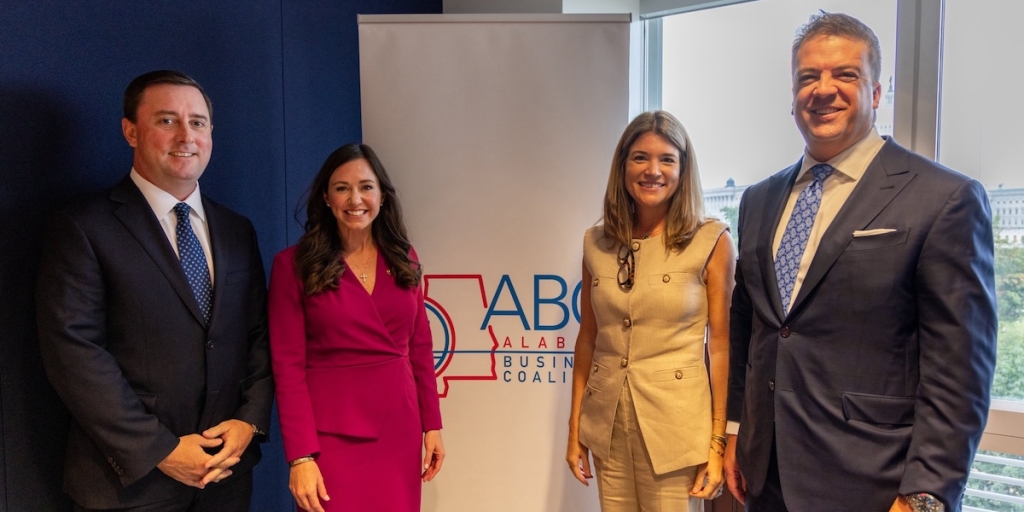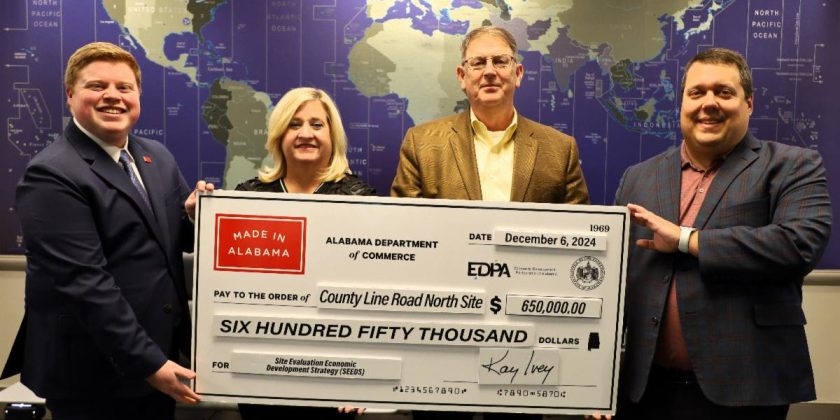The head of the Alabama Department of Commerce will lead a trade mission to Israel early next year, part of a greater outreach between the state and the country that included a forum in Birmingham this week.
Alabama Commerce Secretary Greg Canfield said a trip to Israel is being planned for April or May of 2020 with a focus on trade and business opportunities.
“It’s actually been a while since we’ve had a trade mission (to Israel), so we’re going to lead that trade mission, bring some Alabama companies with us, try to take what we’ve learned today and hopefully look at the health care sector, look at the aviation, aerospace and technology sectors to provide some connectivity between Alabama companies and Israeli companies,” Canfield said.
Canfield’s comments came after he participated in a panel as part of the “Doing Business with Israel: Opportunities for Alabama-Israel Technology Partnerships.” The forum was held at Alabama Power and hosted by U.S. Sen. Doug Jones, the BIRD Foundation, Southern Company, the Birmingham Business Alliance and Conexx, formerly the American Israel Chamber of Commerce.
“It’s just perfect for Alabama,” Jones said of extending relationships with Israel. “We’ve got such a diverse economy here now whether it’s agriculture, manufacturing or life sciences. (We want) to try to get that partnership to strengthen not only the economies of Alabama and Israel, but our alliances in general.”
Canfield said there are areas of overlap between Alabama and Israel when it comes to key industries.
Birmingham hosts Alabama-Israel tech and trade forum from Alabama NewsCenter on Vimeo.
“It’s really interesting because when you look at the industry sectors that are important and growing in Alabama, they happen to be very similar to the sectors that are of growing importance in Israel as well,” he said, noting health care, aerospace and technology among them.
Peggy Sammon, chairwoman of BIO Alabama, said in addition to the institutional relationships between Alabama and Israel, it’s important that those doing the research also build their own bridges.
“We are the recipient of being on some of these trade missions … and they’ve been very effective,” she said. “I think the trade mission is a good way to get started. But I find that a lot of the actual relationships that get built are from the researchers.”
Sammon said areas where the state wants to grow are the types of relationships that should be formed between researchers around the world, such as precision medicine, genetics, genomics and medical devices.
“That starts the bond and then eventually that ripples out to a company and a license and commercialization,” she said. “I think we want to just really encourage the research institutes we have in Alabama to continue those kinds of relationships.”
Birmingham’s economy has been positioning itself as one that is more tech-based. Economic developers are trying to grow emerging technologies in the Magic City.
Josh Carpenter, director of Innovation and Economic Opportunity for the city, said Birmingham already has strong connections to Israel through investments and venture capital. He pointed to Tel Aviv-based tech company Joonko’s decision to locate an office in Birmingham last year as an example.
Carpenter said he and Mayor Randall Woodfin are also planning a business development trip.
“In fact, both of us have secured funding to go to Israel within the next year to actually explore this partnership in a deeper fashion,” he said.
Andrea Yonah is director of business development with the BIRD Foundation. BIRD stands for “Binational Industrial Research and Development.” The foundation takes funding from the U.S. and Israeli governments and invests up to $1 million for projects of mutual benefit to the two countries.
Yonah said the forum opened her eyes to the similarities between the two economies.
“I learned even more about that today,” she said. “As they were talking, I was thinking, ‘Wow, we could do so many projects here in Alabama.’ It’s just identifying the right people and putting the companies together and the rest will happen.”
The BIRD Foundation recently approved funding a project between Southern Company and Israel’s mPrest Solutions. Southern Company is the parent company of Alabama Power and mPrest developed predictive analytics as part of Israel’s “iron dome” missile defense system. The two are working to leverage mPrest’s technology to make the power grid more responsive and resilient.
“Alabama Power and the Southern Company have been great partners, not only with our program but with other programs in Israel,” Yonah said. “I think they are probably the perfect example for how a large company, a utility, can leverage the innovation and technology in Israel in order to improve what they’re doing here.”
“Southern Company has had an R&D organization for 50 years,” said Tracy West, director of End Use, Power Delivery and Fleet Research and Development. “This is our 50th year anniversary. So, R&D and innovation is in our DNA. We look around the world for technology solutions that we can bring back into the business to benefit our customers. We are always out there shopping.”
She said Southern Company learned about mPrest through GE.
“We’re recognizing that everything is happening at the edge of the grid,” she said. “We really need an optimization tool for the edge of the grid. That’s what mPrest brings to the table.”
Canfield said Alabama is looking to become a leader in artificial intelligence.
“We’re about to launch a new commission that is going to bring together practitioners and the private sector and educators and focus on artificial intelligence and what that means, or can mean, for the state of Alabama in terms of new opportunities that cut across a lot of different industries, from automotive to aerospace to a number of different industries, health care and medical services,” he said.
“AI will be a technology that impacts so many different industry sectors,” Canfield told Alabama NewsCenter. “We want to make sure that Alabama takes advantage of being on the cusp of being one of those states that attracts the knowledge-based opportunities of developing that technology here.”
Sammon said there are other growth areas where Alabama can be a leader, and relationships with Israel make sense.
“I think precision medicine is the big revolution that is coming and tying it to genomics and genetics,” she said, noting that Israel’s work in big data could be beneficial in analyzing the massive amount of information being generated.
Carpenter said UAB’s plans to invest into a data science and genomics center will further propel the Magic City as a leader in the space.
(Courtesy of Alabama NewsCenter)













